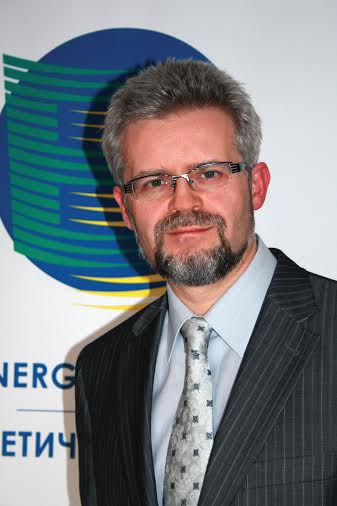Statement by the Secretary General of the Energy Charter on the Crisis in Ukraine
I am deeply concerned about the situation in Ukraine and the current tensions between Ukraine and the Russian Federation, both of whom are members of the Energy Charter Conference and signatories of the European Energy Charter of 1991. My particular concern is that the developments may pose a threat to energy security. With regard to the urgent need to address an imminent threat to peace, I call on the parties to act in line with the principles of international law and their international commitments. I urge both parties to refrain from any action that could provoke an energy security crisis in the Energy Charter constituency.
March 20, 2014 -
Urban Rusnák
-
Articles and Commentary

Any threats to energy security that might emerge from the current crisis should be prevented and addressed on the neutral platform provided by the Energy Charter Secretariat. By signing the European Energy Charter, sixty one states in Eurasia and the European Union established a common framework to improve security of energy supply. In this spirit, I have decided to establish at the Secretariat an Energy Security Contact Group to be prepared for the possible implications of current developments on energy security and to act, as appropriate, in the spirit of international commitments and partnership relations.
The Energy Charter Treaty is legally binding multilateral international treaty, which focuses on cross-border energy flows and international energy investments and currently brings together 54 members and 25 observers. The aim of the Treaty is to strengthen the rule of law on energy issues by creating a level playing field for energy exporting, importing and transit countries.
The Energy Charter, which was established in 1991 together with the Energy Charter Treaty signed in 1994 to form a multilateral framework for cooperation in energy sector. The need for common rules and its bounding character reflect its institutional developments. On the basis of intergovernmental political declaration of the European Energy Charter, current member states agreed on the adoption of the Energy Charter Treaty as a legally binding multilateral instrument, which entered into legal force in 1998. The main goal of the treaty is to ensure common rules for the market with energy resources, transit and support and protection of investments, all of which are consistent with environmental standards.
Mutual interconnection of these aims and actors requires a certain amount of cooperation. Investment activities, cross-border infrastructure projects and common markets are based on the assumption of stability and stability stems from the better understanding, closer cooperation and shared rules. These must be clear and based on consensus in a way to contribute to and guarantee energy security for states as well as for the whole network of actors from producers to consumers. The treaty is built on principles of non-discrimination, freedom of transit, market rules consistent with those of the WTO and non-interference in sovereignty of states over control of their resources. The treaty also provides a framework for dispute settlement between investors and states and is a part of the Protocol on Energy Efficiency and Environmental Aspects.
The work of the Energy Charter Secretariat rests primarily on monitoring of implementation of the treaty on Energy Charter and obligations which result from its protocols. Moreover, the Secretariat organizes conferences with regards to Energy Charter and its related branches, provides analytical support and consultancy both for conferences or other aspects of the process. The Secretariat is also a representative when it comes to negotiating and deepening of relations with other non-member states and relevant international organizations and institutions. Thus, the role of the Secretariat embraces the creation of the framework for cooperation and enlargement processes, which contribute to energy security in general.
The upcoming issue of New Eastern Europe (2/2014) will have a full interview with Secretary Rusnák.
Urban Rusnák is the Secretary General of the Energy Charter Secretariat.

































